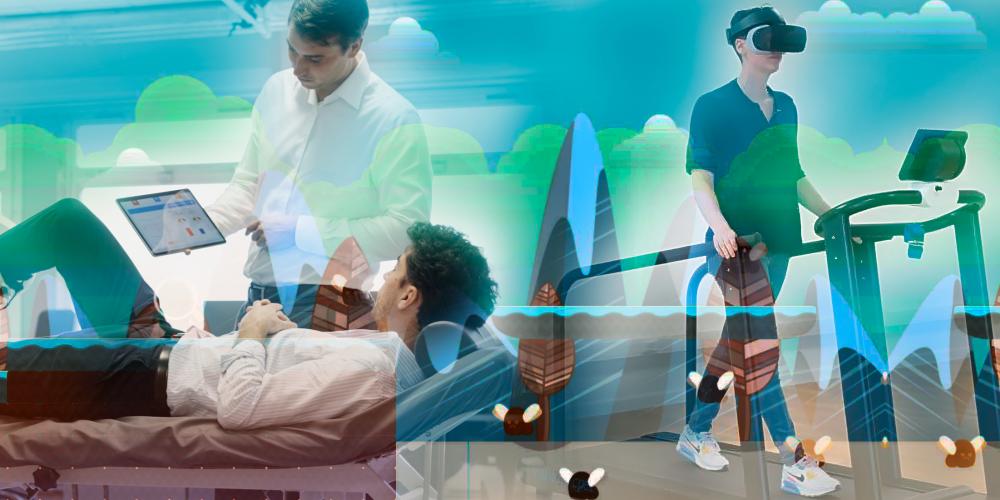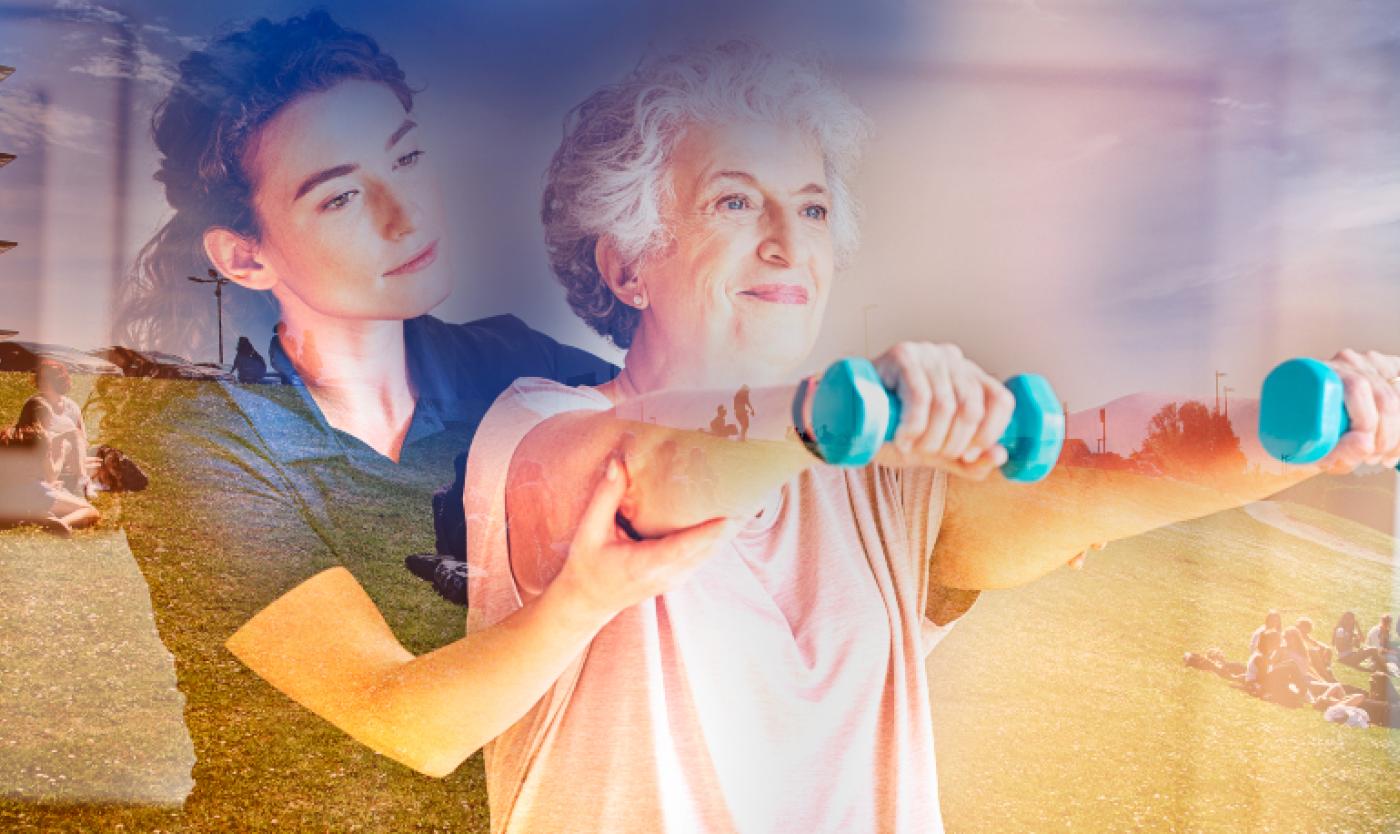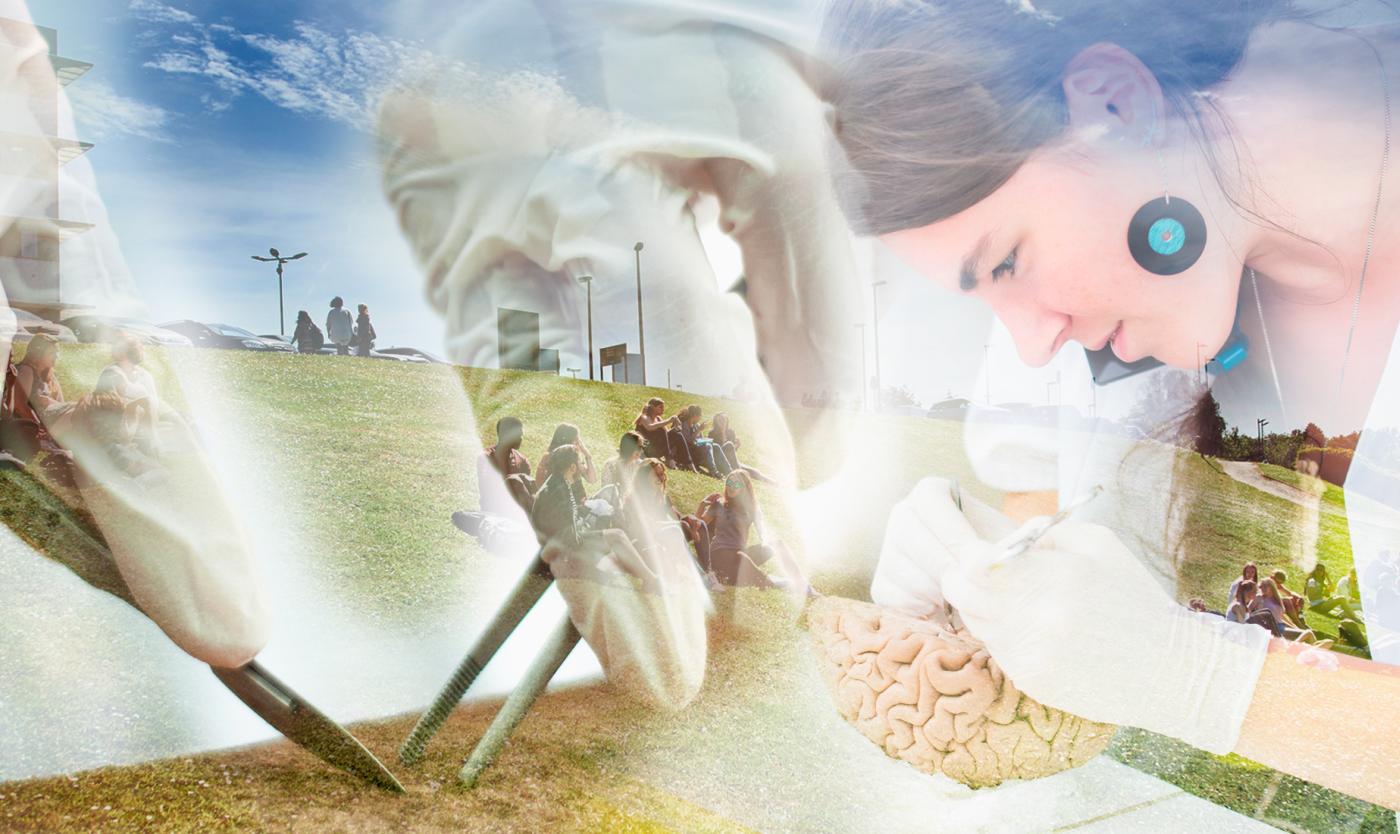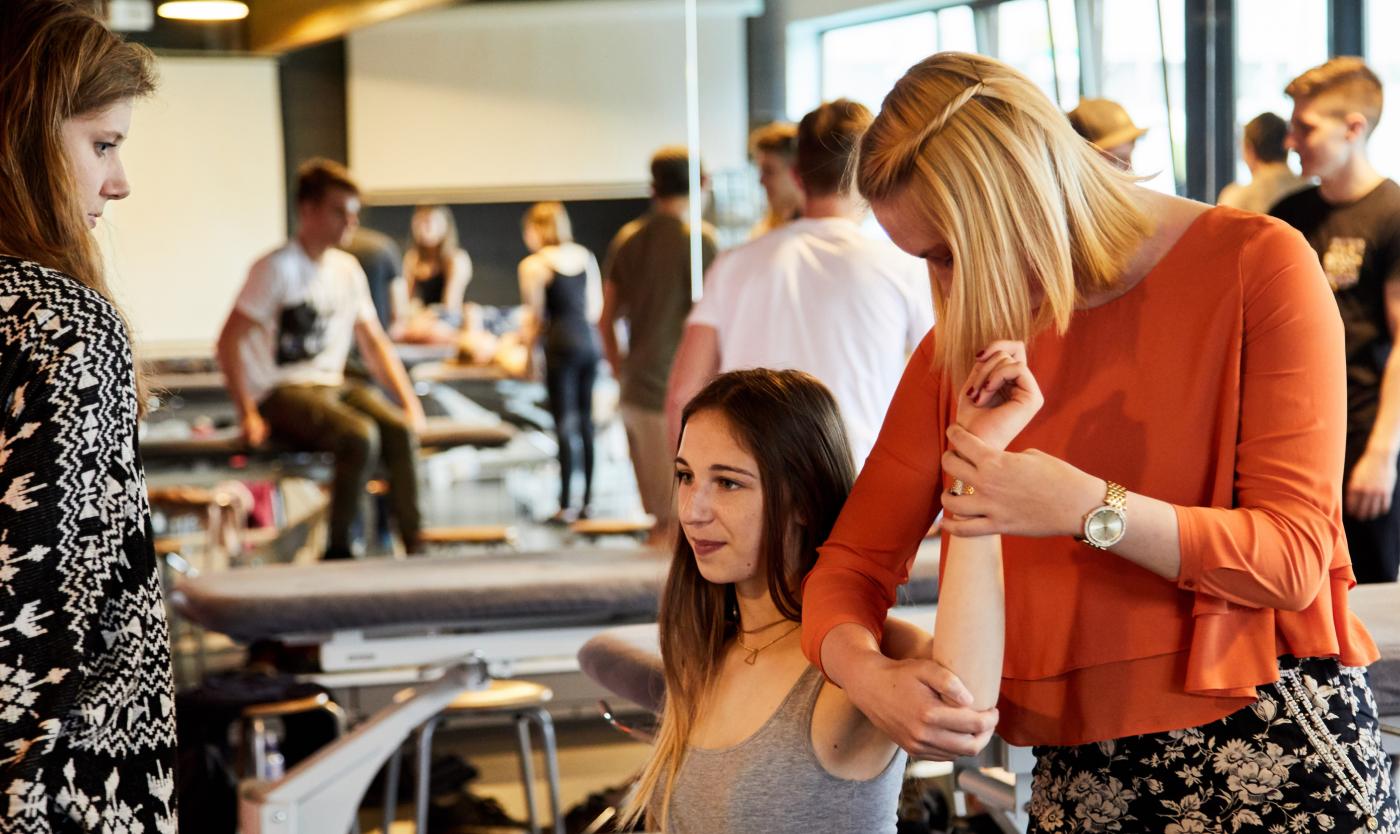
VUB will launch new English-taught programmes in September 2023: two Postgraduate Certificates, a Master and a micro-credential course aimed at an international audience, and at professionals.
Part of the VUB’s life-long learning programme, the new postgraduate certificates and the master programme offer a one-year programme, with both asynchronous and synchronous online courses, with week-long stays physically on campus to hone practical skills. The same structure is used for the micro-credential course. It is a set-up that allows people to combine work and studies, thereby encouraging further learning. It builds on the flexibility that comes with distance-learning, with some required physical moments on campus, but also with fixed contact moments throughout the course, whenever needed.
PG in Rehabilitation & Human Sustainable Technology
The Postgraduate certificate in rehabilitation and human sustainable technology is part of an Erasmus+ project with SOMT (the Netherlands), Tampere University (Finland), and St John’s University York (UK) as partners alongside the VUB. Professor David Beckwée tells us more about the thought process behind launching this programme: “It was set up in response to a call from industry for specifically trained people who have a combination of expert skills in technology and engineering alongside those of healthcare workers and physiotherapists. In a first instance the target audience for this programme are physiotherapists who will be given additional AI, programming, and engineering skills. The premise is that you want two sets of people (engineers and physiotherapists/healthcare workers) to be able to talk the same language and work on the issues, each with their own skill set but to have an accomplished level of each other’s skills.”
Matthias Eggermont illustrates this with an example: “A good practical example of this combination of expertise is the now prolific big data collection via our wearable tech. When you go for a run, Strava will capture huge amounts of data, but as a user, do you know what to do with it all? It is useful to be able to translate this data set into practical information to elicit behaviour change techniques. In order for physiotherapists to do so and then transmit this to their patients, they will need to understand the fundamentals of data input.”
At the end of the day the idea is to obtain the certificate and have a totally new competence profile that will allow physiotherapists to look at the technical applications from a user and patient perspective, and allow them to ultimately tweak it according to the physiotherapist’s and/or patient’s needs.
The programme is set up as distance learning course, some of which you can plan yourself according to your own schedule, while others are live (online) classes. The course does have three weeks across the year with in-person classes on campus (two at the VUB’s Health Campus, and one at SOMT in the Netherlands), and these are compulsory to attend. The on-campus weeks is- when not only theory is put into practice, but also allows for networking and getting together as a group. The added bonus of this postgraduate certificate is that the demand for this came from industry, so the industry sector is very keen to work with the programme directors and students during the courses. The organisers of the PG are already looking ahead to for instance include a module on robotics and rehabilitation, so exciting things will follow.

Micro-credential in Rehabilitation & Prevention in the Healthy Aging Context
This course is specifically for those with a physiotherapy degree, and aims to delve deeper into healthy aging in terms of movement and prevention (e.g. falling, injury, etc.). The course set-up is the same as the PGs, and includes one week on campus in April to focus on the practical skills. The blended learning set-up allows participants to manage the learning within their professional context, but does include online interactive sessions with some parts in small groups which are mandatory. Professor David Beckwée explains the purpose of the micro-credential: “The aim is to pass on expertise to guide people from a younger age on towards a healthy aging process, something much needed in a world with a growing aging population. There is a focus on guiding patients who are 65+, and the issues that come with older age such as limited mobility, or symptoms due to e.g. stroke, dementia, Parkinson’s disease. The demand for courses such as these has increased considerably due to a lack of geriatric physiotherapists with the necessary skill set.”

PG in Clinical Anatomy
The reason to launch the PG in Clinical Anatomy is because for the past five to six years international students have specifically been asking for it. The PG is aimed at those with a background in anatomical structures (so not just physiotherapists, but also e.g. biomedical students, doctors, those working on machine-building, ergonomics experts, etc.). The idea is to give participants a deeper knowledge of anatomy and apply this newly-learned knowledge in their field of expertise. The programme focuses on enhancing knowledge in anatomy through dissection workshops, and to give participants 3D anatomical insight into the neuro-musculoskeletal system. The main selling point of this programme at VUB is that in most countries there is limited (or sometimes no) access to dissection rooms and often students are taught via a digital dissecting table, whereas here they have open and easy access to practice their skills on actual bodies. “The importance of being able to feel the various structures of the human body and do the dissection on a real body, is invaluable, and quite unique,” Professor Scafoglieri explains.
It is a one-year programme, in a blended format, with two weeks spent on campus to hone the acquired practical skills (compulsory). The mix of interactive online sessions and prepped material will also include Q&A sessions and study moments in group online to stimulate cohesiveness.

Advanced Master in Manual Therapy
This programme is a one-year research Master, and is specifically aimed at those who want to acquire more in-depth knowledge prior to starting a PhD, or continue their studies. It can also provide an added value for practitioners but is really aimed at those staying in the area of research and education. It is based on the Dutch-taught programme, and set up in a similar manner as the postgraduate programmes and the micro-credential described above. It also has two weeks on campus (mandatory). The target audience is international to help them expand and enhance the educational and research offer in Manual Therapy back home, given that this often is non-existent abroad, so this helps to fill that gap. Professor Scafoglieri adds, “It is an area where Belgium, and specifically VUB, is at the forefront, as physiotherapy is offered at a high academic level (a fully-fledged Master programme).”
Summary:
PG in Rehabilitation & Human Sustainable Technology
- Courses start early September. One-year programme
- 50 ECTS
- Link to online info
Micro-credential in Rehabilitation & Prevention in the Healthy Aging Context
- Courses start in September. One-year course
- 12 ECTS
- Link to online info
PG in Clinical Anatomy
- Courses start late September. One-year programme
- 21 ECTS
- Link to online info
Advanced Master in Manual Therapy
- Courses start late September. One-year programme
- 60 ECTS track or 46 ECTS abridged track
- Link to online info